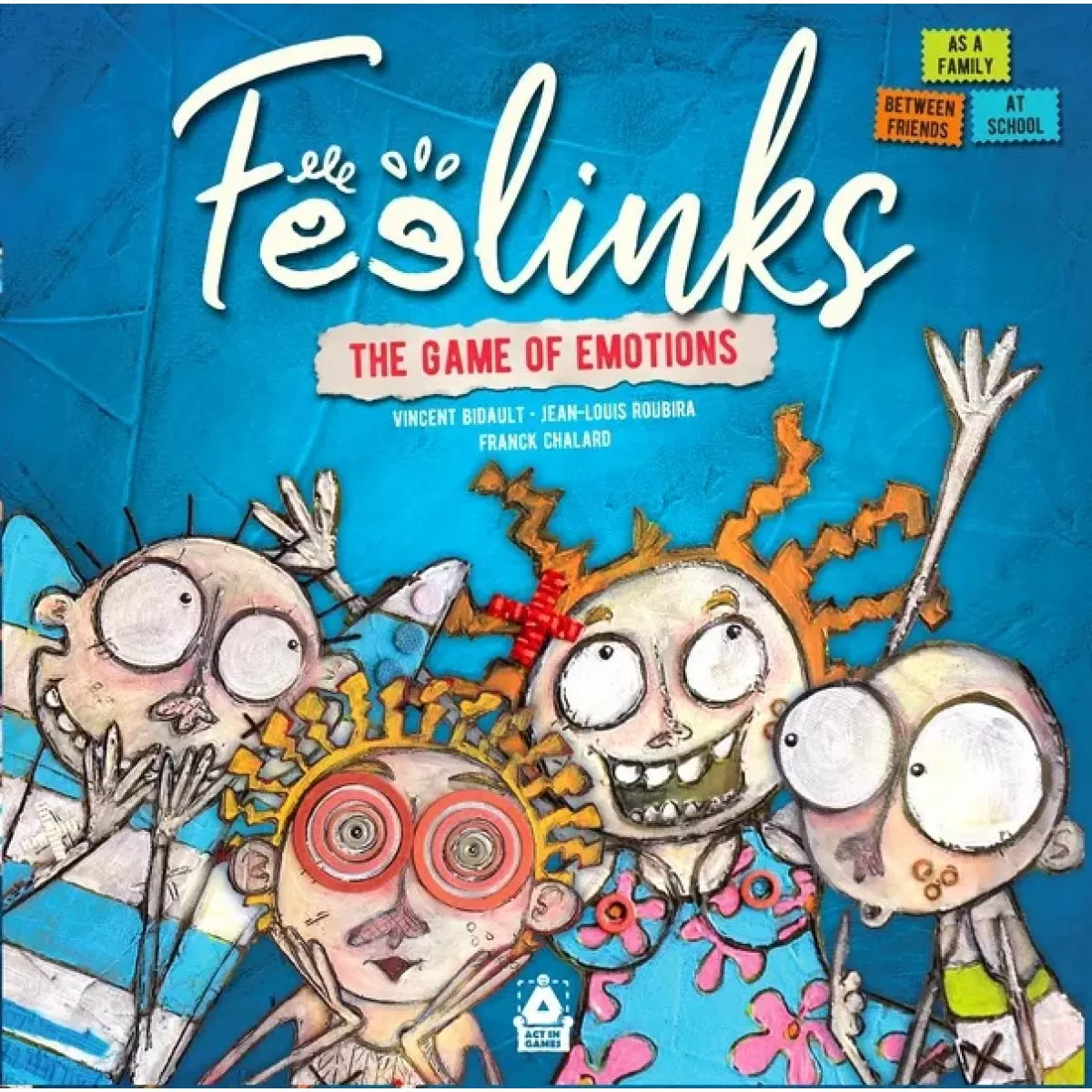Feelinks
- Available to Preorder
- SKU: GFG96720 Manufacturer SKU
- RRP: NZD $74.99 Recommended Retail Price
- Barcode: 616909967209 Product barcode
- Estimated Release Date: Unknown The estimated date of the product's release
- 6 items per case Case quantity
How would you feel if you heard this: "Your child tells you that they have prophetic dreams"? Would you be sad? Excited? Scared? Or maybe even happy? Most importantly, how would your partner feel? Feelinks is a game of emotions. During play, you:
1) Pick a card and chose a situation to read.
2) Choose the emotion that matches how you feel and bet on your partner's feelings.
3) Show your mutual choices, take a step on the emotion track, then change partner.
Depending on the numbers of players, if you play with a certain numbers of rounds, the player who reaches the farthest square on the scoring track wins the game. If you play without counting each round, the first player to reach the last square of the emotion track ends the game.
Feelings, the original title of the game, was proclaimed winner of the call for projects launched by the city of Poitiers in the fight against discrimination. The goal was the creation of a simple, easily playable game that relies on situations or questions around discrimination. Jean-Louis Roubira, one of the designers, previously developed the famous Dixit workshops of language with young people at risk.
In the game, our preconceptions are challenged. Feelinks contains 50 cards offering 150 situations from everyday life. For example: "You wake up in the body of a person of a different ethnicity" or "The Minister of Justice is caught smoking cannabis". The players are obligated to express their feelings in a given situation and to guess the feeling of another player in the same situation. This empathy for each player is conducive to the debate and to challenges of our preconceptions.
How would you feel if you heard this: "Your child tells you that they have prophetic dreams"? Would you be sad? Excited? Scared? Or maybe even happy? Most importantly, how would your partner feel? Feelinks is a game of emotions. During play, you:
1) Pick a card and chose a situation to read.
2) Choose the emotion that matches how you feel and bet on your partner's feelings.
3) Show your mutual choices, take a step on the emotion track, then change partner.
Depending on the numbers of players, if you play with a certain numbers of rounds, the player who reaches the farthest square on the scoring track wins the game. If you play without counting each round, the first player to reach the last square of the emotion track ends the game.
Feelings, the original title of the game, was proclaimed winner of the call for projects launched by the city of Poitiers in the fight against discrimination. The goal was the creation of a simple, easily playable game that relies on situations or questions around discrimination. Jean-Louis Roubira, one of the designers, previously developed the famous Dixit workshops of language with young people at risk.
In the game, our preconceptions are challenged. Feelinks contains 50 cards offering 150 situations from everyday life. For example: "You wake up in the body of a person of a different ethnicity" or "The Minister of Justice is caught smoking cannabis". The players are obligated to express their feelings in a given situation and to guess the feeling of another player in the same situation. This empathy for each player is conducive to the debate and to challenges of our preconceptions.
| Board Game Genre | Multiplayer, Card Game, Educational, Party Game, Word Game |
|---|---|
| Weight (kg) | 0.703700 |
| LPG Bestseller | No |
| Item Group | Board Games |
| Length (cm) | 5.715 |
| Width (cm) | 23.813 |
| Height (cm) | 23.813 |
| Publisher | Grey Fox Games |
| Discontinued Product | No |
| Exclusive to LPG | Yes |
| Available for Resale | Yes |
| Dangerous Good | No |
| Allow Export | Yes |
| Core Products | No |

 AU
AU
